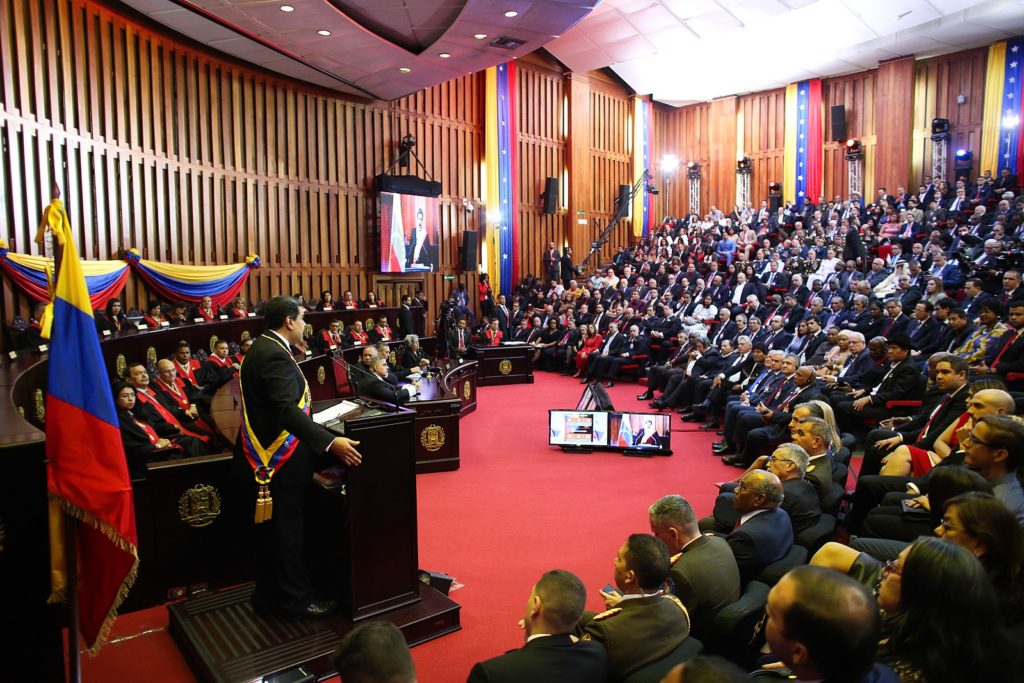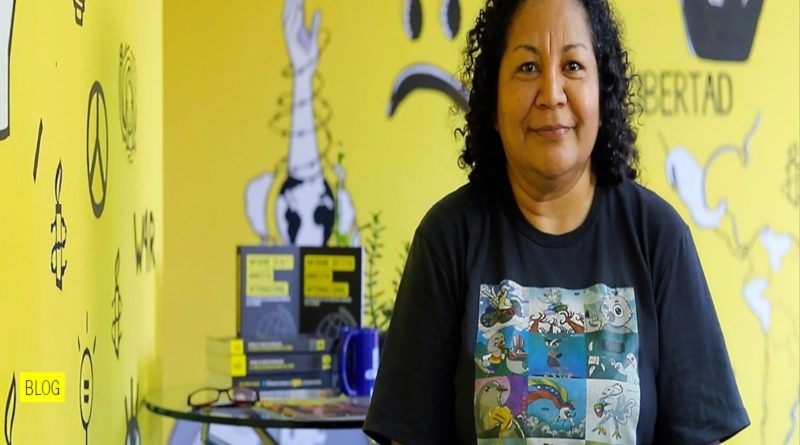A sector of civil society is taking steps to influence the election of the new National Electoral Council (CNE). Non-governmental organizations work discreetly in the nomination of honorable Venezuelans who meet the requirements and guarantee the independence of the Electoral Power for the next seven years.
Experts in electoral matters, members of academic circles and former officials of the CNE were considered for a list of candidates who were allowed to apply until February 25. However, there is no certainty that autonomous universities such as Universidad Central de Venezuela will nominate candidates, due to the doubts that exist over the legitimacy of the Legislative Power, which reduces the possibilities of having impartial electoral officials.
According to the Constitution and the Law on the Electoral Power, three of the five members of the CNE board of directors must be nominated by civil society, one by the schools of legal and political sciences of the national universities and one by the Citizen Power.
The main challenge of the organizations that undertake this initiative under a platform called Diálogo Social (Social Dialogue) is the overwhelming Chavista majority that dominates the National Assembly and that will have the last word in the appointment of the next electoral authorities.
“A window of opportunity”
The director of the Global Observatory on Communication and Democracy, Griselda Colina, and the director of the Venezuelan Observatory on Elections (OEV), Carlos Medina, see a window of opportunity to elect an independent CNE.
For both, the incorporation to the electoral nominations committee of political scientist Jesús González and doctor in physics Humberto Rojas, who is also a member of Asamblea de Educación Electoral Network, is a sign of “openness” that allows civil society to influence the process positively.
“We believe that we must take advantage of the opportunity that is opening up to appoint a new CNE. As civil society, we cannot stop participating, we have two representatives in the committee (Jesús González and Humberto Rojas), we made an effort to have them there, they are our eyes and our voices, that is why we are urging several people to present their candidacies”, explains Griselda Colina.
Colina insists that the holding of free, fair and competitive elections has as a first condition the appointment of an electoral referee who truly serves the country, builds trust and restores the vote to its power as an instrument for peaceful change.
“We understand that there is mistrust, that polarization has affected us all, but after two years (2019 and 2020) in which no progress was made on electoral grounds and in which abstention was useless, we must occupy the spaces ”, she argues.
She adds that the strategy aims to present names of people who have a strong record and “are impossible to reject and, if rejected, will cast doubts on the soundness of the process.”
“If we did not believe that there are opportunities, we would not do this,” she maintains, although she recognizes that the negotiation between the political actors will be decisive to materialize the changes they aspire to.
“In terms of political strength in the National Assembly, the ruling PSUV can decide on the final composition of the CNE board because it has the votes to do so. But the decision they make is going to have consequences. The last elections gave the Government a very large majority, but with the participation of only 30% of the voters and under conditions that made the process not recognized either inside or outside the country. The Government has been bearing the cost ever since, and now it does not have the broad legitimacy that the body requires for operating, ”says Carlos Medina.
Regarding the latest sanctions approved by the European Union against 19 public officials including CNE directors, Medina considers that the measures “are a consequence of the lack of an institutional framework in the country” and their impact on the process of renewal of the Electoral Power will depend on the active participation of civil society.
“I think they can hinder the process, but they can also create pressure to achieve better conditions,” he says.
Colina concedes: “They certainly affect the work we are doing to promote participation; however, we understand that a clear message is being sent as to which are the red lines that the international community is willing to draw in terms of free elections”.
The new CNE is crucial to unlocking the political crisis in the country. The board of directors will be elected by the National Assembly for the first time in 15 years (the last time the Legislative Power appointed them was in 2006) and they will have in their hands the organization of the 2024 presidential elections.
Does Chavismo have incentives to compromise?
The political scientist and social psychologist Ricardo Sucre considers that Nicolás Maduro’s main incentive is to seek a “regularization of the conflict” or “political stability” and his actions are aimed at imposing the National Assembly with a Chavista majority. However, he sees it unlikely that the regime is willing to give up conditions that endanger its stay in power.
In his opinion, the sanctions of the European Union seek to influence the renewal of the CNE. “They were directed at Tania D´Amelio, Indira Alfonso and Leonardo Morales; it seems that they are telling the government to name people who are not in their orbit of influence. Now, is the government going to remove Alfonso? I do not think so. Perhaps it will remove other actors because it is interested in seeking dialogue with the European Union. From this process, a CNE with a better evaluation can emerge ”, he points out.
However, the analyst emphasizes that any change in the composition of the CNE goes through a political negotiation in which the recognition of the parties (both from Chavismo and the opposition), the name of the candidates and the support that these people have in the National Assembly will be decisive.
Why is it essential for the new CNE to be independent? What is at stake?
“Peace is at risk. I believe Venezuelan people prefer the electoral route as the mechanism for the resolution of the conflict. It is not about revolutions or coups, so it is obvious that if you choose a CNE that creates a certain level of trust, it will allow the population to express itself. Otherwise, you are going to end up with elections legitimized by only 30% of the electoral roll or a situation where the electoral route is completely ruled out and scenarios of armed conflict arise”, concludes the analyst.
Translated by José Rafael Medina




